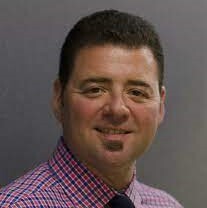
Closing Ethics Program - Something's Gotta Give
Recorded On: 10/09/2024
-
Register
- Non-member - $80
- Member - $40
- *Further discounts may apply once you log in.
Lawyers are at an ethical crossroads, and it’s all because of AI. It may be possible that the current rules are inadequate in the modern technological environment. Could there be — dare we say — a flaw in the application of the current code? Join Stuart Teicher, “the CLE Performer,” as he explores whether the practice of law is in the midst of a shifting technological-ethical paradigm. Stuart will explain how the current ethical standards regarding AI were created, the changes the rules have gone through over the years, and the challenges from the world of technology today.
Attendees will learn:
- The importance of the duty of competence, and the evolving nature of Rule 1.1
- The way issues of supervision affect a lawyer’s ethical responsibilities with technology
- The surprising relevance of the rule regarding safekeeping of client property and cloud based technology
- The curious difficulty in applying all of these rules too artificial intelligence, given how the threats to confidentiality have evolved.
Key:

Stuart Teicher, Esq
Professional Legal Educator
Georgetown University Law Center
CLE/CPD CREDIT IS AVAILABLE IN THE FOLLOWING JURISDICTIONS:
*Alaska, *Arizona, California, *Connecticut, Georgia, *Hawaii, Illinois, Minnesota, *Montana, *New Hampshire, *New Jersey, *New York, *North Dakota, Ohio, Pennsylvania, Tennessee, Texas, and Washington.
*Indicates that CLE/CPD credit is available by virtue of reciprocity with another jurisdiction.
ATTENDEES MUST SELF-FILE IN THE FOLLOWING JURISDICTIONS (A CERTIFICATE WILL BE PROVIDED TO ASSIST YOUR FILING EFFORTS):
Alabama, Arkansas, Colorado, Delaware, Florida, Idaho, Indiana, Iowa, Louisiana, Kansas, Kentucky, Maine, Mississippi, Missouri, Nebraska, Nevada, New Mexico, North Carolina, Oklahoma, Oregon, Puerto Rico, Rhode Island, South Carolina, Utah, Vermont, West Virginia, Wisconsin, and Wyoming.
CLE/CPD IS NOT MANDATORY IN THE FOLLOWING JURISDICTIONS:
District of Columbia, Maryland, Massachusetts, Michigan, South Dakota
**Applications for the jurisdiction of Virginia are being made in advance of the 2025 compliance cycle, which begins November 1, 2024. Additional details will be provided upon receipt**
